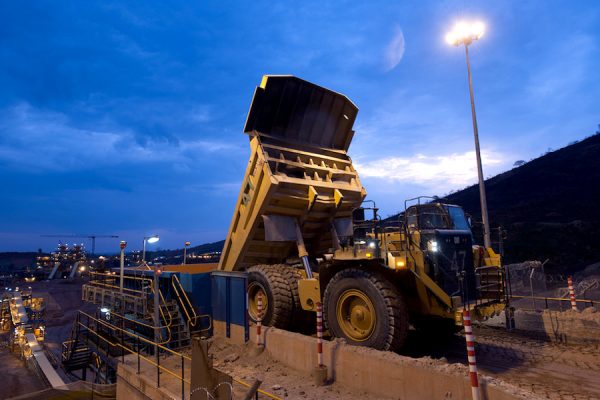More than 35% of the gold mines in the Democratic Republic of Congo (DRC) are at risk of being directly or indirectly affected by the ongoing Ebola outbreak in the country, the world’s top cobalt miner and a significant copper and gold producer, a study shows.
Barrick’s Kibali and Vector Resources’ Adidi-Kanga gold mines are now threatened as the Ebola-infected areas grow, potentially jeopardizing output, says Verisk Maplecroft.
The number of people infected with the often fatal virus has now exceeded 1,000 cases, the World Health Organization confirmed, making it the second-worst outbreak in history, with daily rates on the rise as response workers continue to face violence.
Together with the obvious risks for those working in the country’s gold mines, companies are now facing delays in their exports, as part of Ebola prevention methods being implemented at border checkpoints, Indigo Ellis, Verisk Maplecroft’s lead DRC Analyst warns.
The effect on gold producers depends on whether mines are industrial or artisanal, and on how close they are to known cases, the expert says. In Ellis’ view, there are two major issues the gold mining industry has to urgently deal with.
One, is the risk to mine staff. “Larger industrial mining companies will need to enact strict protocols to reduce the risk of transmission to their sites, which will likely slow down ore extraction and construction efforts,” the analyst says.
The other is related to shipments disruptions. “Ebola prevention methods at border checkpoints will almost certainly slow gold exports as the Ugandan government and World Health Organization (WHO) introduce measures to limit the spread,” Ellis says. “A combination of lengthier processes, such as heat signature mapping, and less time-consuming methods, such as hand washing, will result in tailbacks at border crossings.”
In its current form, the epidemic won’t impact cobalt production in the DRC, responsible for more than 60% of the world’s total.
Verisk Maplecroft has detected a growing threat to industrial mines such as Barrick’s Kibali and Vector Resources’ Adidi-Kanga, which increases the likelihood of gold production being affected, especially after the recent confirmation of cases in Bunia, a city of close to 1 million people, closer to the Ugandan border than previous outbreaks.
High tech companies, including Apple and US consumer products manufacturer Richline Group, may soon be affected as well, the global risk consultancy says, as they source artisanal gold from the affected areas.
The risk assessment specialist notes that, in its current form, the Ebola epidemic won’t impact the nation’s cobalt production, as the distance from the Katanga region largely prevents its spread. Ellis bases his predictions on the DRC’s low-risk score achieved in Verisk Maplecroft’s Pandemic Transmission Index, which measures the likelihood of pandemic spread relative to connectivity, including travel infrastructure.
The DRC generates more than 60% of the world’s cobalt, a key material for making the batteries that power electric cars.
Worse before it gets better
The consultancy’s outlook is not encouraging as it expects health workers to continue to struggle to track contacts with Ebola patients, which makes it hard to stop the virus from spreading across the eastern provinces.
Violence in the DRC has forced Ebola treatment facilities to shut. Five Ebola centres have been attacked since last month, sometimes by armed assailants. The violence led French medical charity Doctors Without Borders to suspend its activities at the epicentre of the outbreak on Feb. 28.
This past week saw 58 new cases, the highest number in a week this, according to the International Rescue Committee (IRC).
“We are already almost seven months into this outbreak and at this stage we should be seeing the case rate declining, not on the rise,” Tariq Riebl, IRC’s Emergency Response Director in the DRC, told Times Magazine.
“With an optimistic outlook this outbreak is predicted to last another six months — but realistically we could be looking towards another year of fighting this disease,” Riebl said._Mining.com




